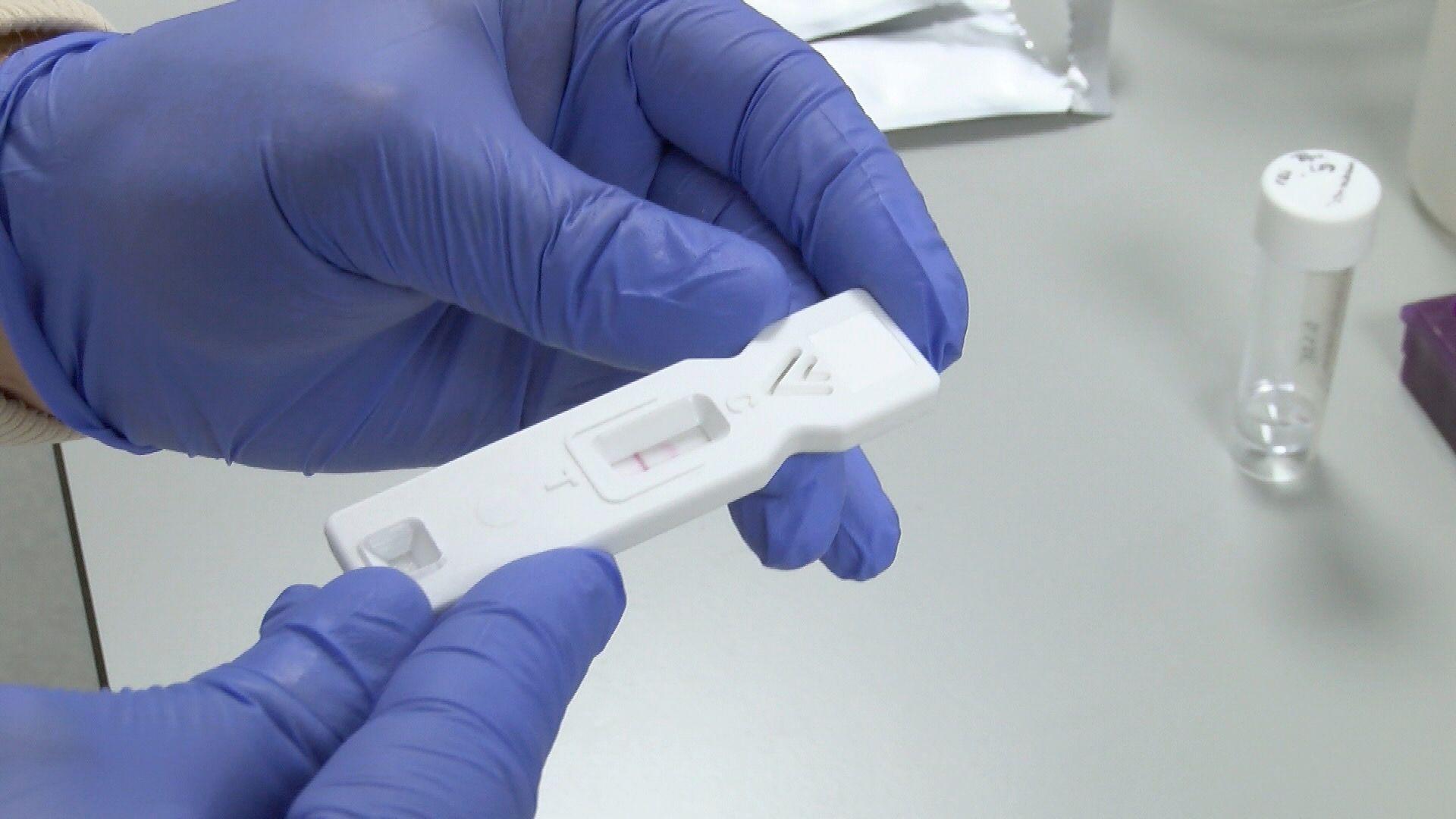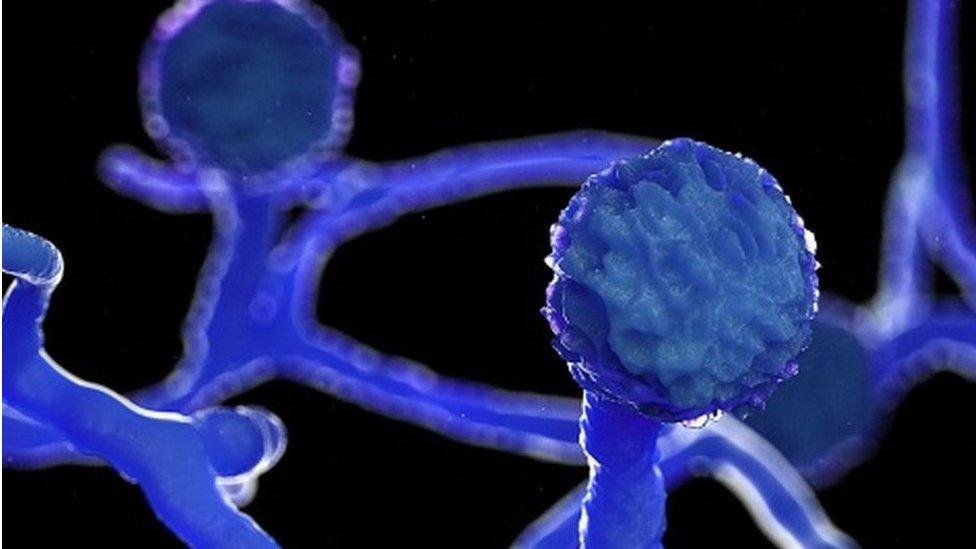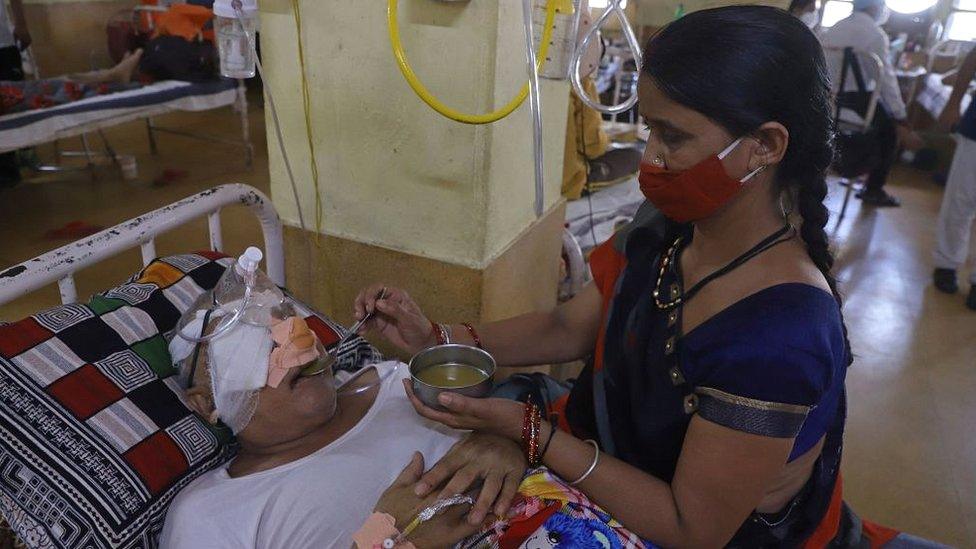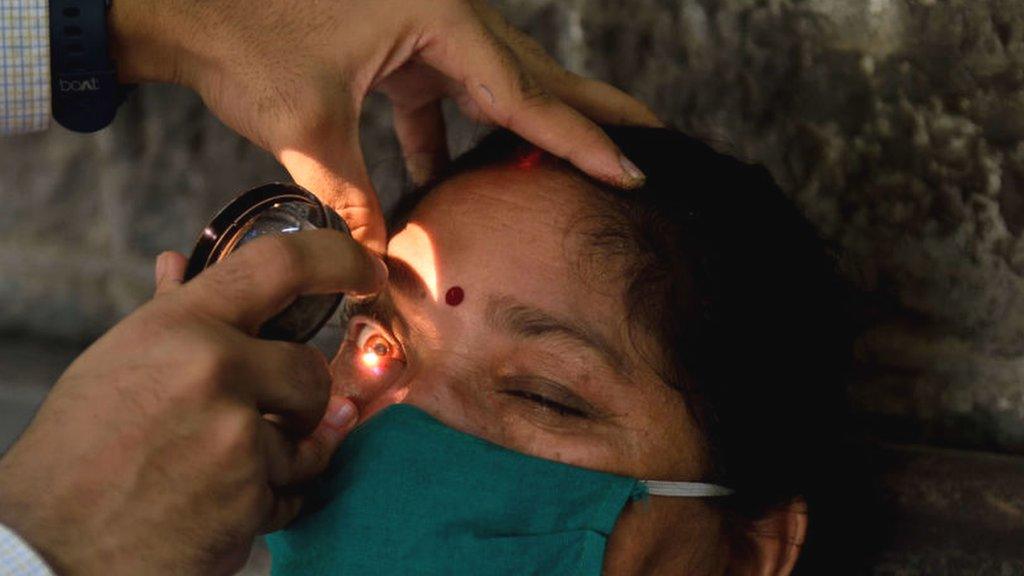Fungal test could save people from fatal infection

A prototype of the lateral flow test for black fungus disease
- Published
A new test which creators say could one day save the lives of people suffering from a deadly fungal infection is being developed at the University of Exeter.
Mucormycosis, commonly known as black fungus disease, spiked during the second wave of the Covid-19 pandemic.
Now, Professor Chris Thornton, a professor in fungal immunology at the university, has developed a prototype lateral flow test, which could save valuable time in getting patients the treatment they need.
The test has been validated using patient samples could be ready to use in hospitals within three years if it passes regulatory checks, project leaders said.
The fugal spores that cause black fungus disease are ever-present in the environment and harmless for most people. The disease is rare and thought to only affect those with compromised immunity.
However, a combination of Covid infection, poorly-managed diabetes and an over-use of steroids to control lung inflammation from Covid led to a spike in infections.
In 2021, there was an epidemic in India, with 40,000 cases leading to 3,500 deaths. Many of the survivors were left with facial disfigurements.
Although still at prototype stage, a new study published in the Journal of Clinical Microbiology has shown the new test to be swift and accurate in identifying the disease.

Professor Chris Thornton, who is developing a novel later flow test for Black Fungus Disease
Professor Thornton, co-author of the study, said: "Mucormycosis is an horrific disease, which spreads rapidly in the body and can leave people horribly facially disfigured, and is often fatal."
"Early diagnosis is crucial for the best outcome. This study shows that our new test is quick and effective.
"These exciting results are a critical milestone in the development and validation of the test, which we aim to commercialise in the next three years."
The study was conducted in partnership with colleagues at Besançon University hospital in France.
Researchers tested the device in patients with mucormycosis, patients with other fungal infections, and patients without fungal infections.
The test detects mucormycosis in 30 minutes with a high level of specificity and sensitivity.
Follow BBC Devon on X, external, Facebook, external and Instagram, external. Send your story ideas to spotlight@bbc.co.uk, external.
Related topics
- Published9 May 2021

- Published23 May 2021

- Published6 June 2021
